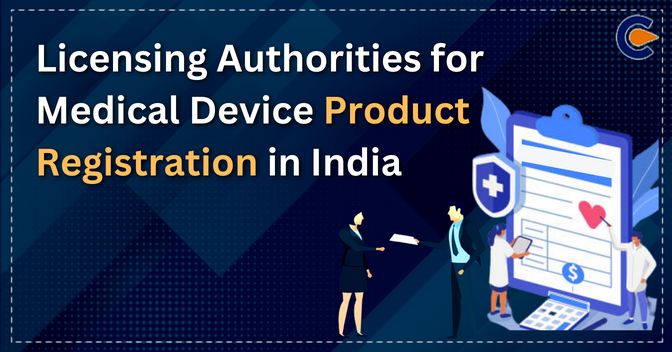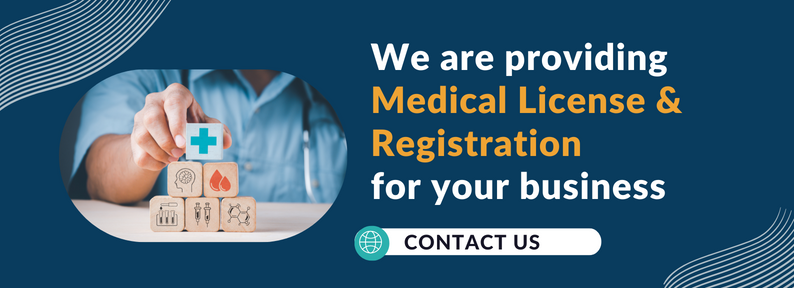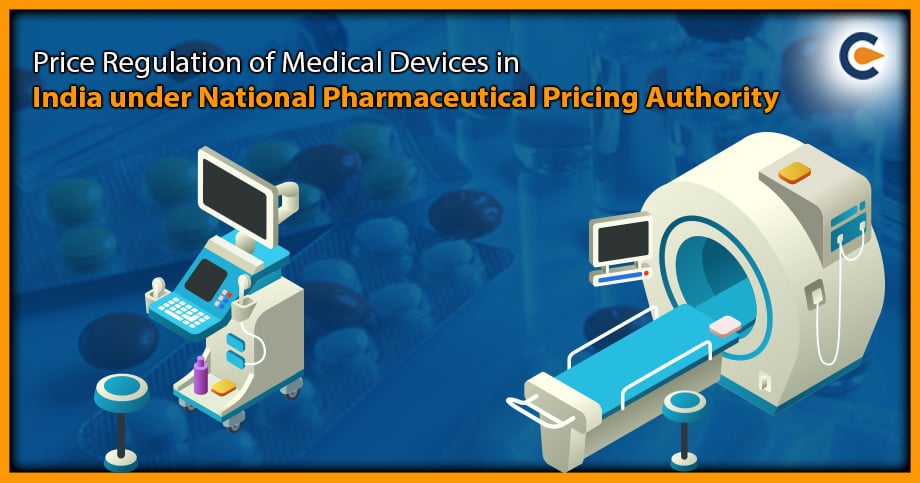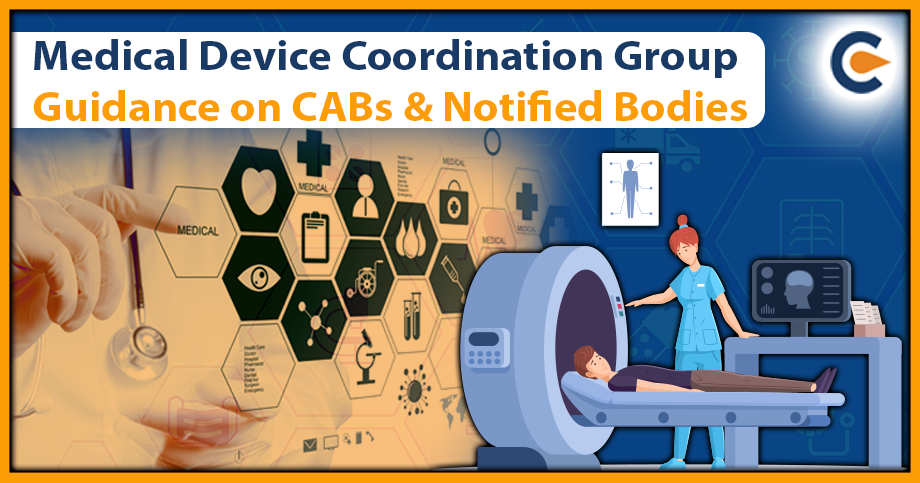In older times, manufacturing devices were sold without any law guiding them in India. In the year 2016, a rule was set forth which stated that the medical devices in India must be in accordance with the Medical Device Regulations, which are governed by Central Drug Standard Control Organization CDSCO. The CDSCO is the main body responsible for making rules, regulations and standards for Drugs, Medicinal devices, IVDs etc. It lays down standards and rules for the regulation of medical devices in India and controls the Import, Export, Manufacturing and Sales of Medical devices and drugs in India. It advises and coordinates with the State Drug Control Organization (SDCO) and maintains the laws and rules of the Drugs and Cosmetics Act, 1940[1]. In this blog, we will discuss Licensing Authorities for Medical Device Product Registration in India.
Authorities controlling Medical Device Product Registration in India
All the drugs and medical devices being circulated in India are duly regulated and controlled by the Indian government to ensure the safety and good health of the people using those devices or drugs. For this reason, the Indian government has formed various bodies in order to keep a check and control the Import, Export, Manufacturing and Sales of Medical devices, Drugs and Medicine related products in India. Those governing bodies are as follows-
- Central Drug Standards Control Organization (CDSCO)
- The Drug Controller General of India (DCGI)
- Drugs and Cosmetics Acts (1940) and Rules (1945)
Central Drug Standards Control Organization (CDSCO)
The Central Drug Standards Control Organization (CDSCO) works under the Directorate General of health services, the Ministry of Health and Family Welfare, and the Government of India. CDSCO is the NRAI or National Regulatory Authority of India. The CDSCO headquarter is located in New Delhi, and it has multiple zonal offices all over India. CDSCO also works along with Central Drug Laboratories in order to perform tests. CDSCO also works with Drugs Technical Advisory Board and the Drug Consultative Committee. Other than Medical Device Product Registration, CDSCO is also responsible for granting licenses to certain drugs and medical devices. The central authorities are accountable for approving new drugs, conducting trials to lay down standards for the quality of Drugs to be imported, and various other activities. The state authorities as well are responsible for regulating the rules related to the manufacture, sale and distribution of drugs and medical devices, etc. These bodies are formulated under the Drugs and Cosmetics Acts, 1940 and Rules, 1945.
There are various functions that CDSCO performs. The functions are-
- Medical Device Product Registration
- Setting up standards for Medical devices, Drugs, IVDs etc.
- Setting up laws, regulations, amendments and rules for Drugs, Medicines, Medical Devices, IVDs, etc.
- Regulating the market authorization of Drugs and Medical Devices.
- Regulating the Clinical Research and Drug trials in India.
- Approval of license to manufacture certain Drugs and other medicine-related devices
- Regulating the standard of imported drugs in India.
- Testing of Drugs through Central Drugs labs.
The Drug Controller General of India (DCGI)
The Drug Controller General of India (DCGI) is the Head of the Department of the Central Drugs Standard Control Organization (CDSCO) in India. DCGI can approve the license for certain categories in India, such as Blood and Blood components, vaccines, etc. The DCGI functions under the Ministry of Health & Family Welfare and establishes the regulations and standards for the sale, manufacture, import-export and distribution of Drugs in India. There are various other functions performed by DCGI-
- The DCGI is responsible for providing approval for Medical Device Product Registration.
- The DCGI sets up rules and standards for sales, manufacture, Import, export and regulation of Drugs, Medical devices, medicine-related drugs, IVDs, etc.
- DCGI is the appellate authority for any case or dispute related to the quality or standard of drugs or any medical device.
- DCGI is responsible for preparing and maintaining national reference standards for drugs in India.
- The DCGI ensures that the laws and regulations for Drugs and Medical Devices are as per the Drugs and Cosmetics Acts, 1940.
- DCGI is in charge of the training of Drug Analysts, which is deputed by State Drug Control Laboratories and other bodies.
- DCGI is in charge of analyzing the cosmetics which are received from CDSCO as survey samples.
- The DCGI is the Central Licensing Authority for Medical Devices, which comes under the Medical Device Rules, 2017.
Drugs and Cosmetics Acts and Rules
The Drugs & Cosmetics Acts, 1940 and Drugs and cosmetics rules 1945 have allotted many responsibilities to the Central and State regulatory authority for the regulation of drugs and cosmetics in India. It ensures safety, standardization, quality, durability, efficiency and reliability of medical devices, Drugs and other medical-related products distributed all over India, with the aim of bringing out transparency, effectiveness and quality service and making sure that the consumers are receiving safe, efficient and quality products, which are certified by CDSCO.
The Drugs and Cosmetics Acts and Rules are a set of laws that regulate the approval of new drugs, set down the quality standards and maintain the quality of drugs and Medical Devices and various other activities run by the State Drug Control Organization.
Different types of Medical Devices-
On the basis of Risks, the medical devices can be divided into the following categories-
- Class A- Low-risk devices. For Example- Thermometers, tongue depressors, etc.
- Class B- Low to Medium risk devices. For example- include hypodermic needles, suction equipment, etc.
- Class C- Medium to high-risk devices. For example- lung ventilators, bone fixators, etc.
- Class D- High-risk devices. For example- heart valves, implantable devices, etc.
Procedure for Medical Device Product Registration
According to CDSCO, all the Notified medical devices are required to be registered by CSDSO in order to sell, manufacture, Import, export, etc. All the non- notified and Non- regulated products which have obtained a NOC are not required to be registered by CDSCO. Following is the procedure to conduct all the regulated Medical Device Product Registration-
- A local Indian agent is appointed in order to apply for the registration and license.
- Device Master File or DMF is prepared
- Plant Master File or PMF is prepared
- An application form is prepared for the process of registration, along with the required documents along with the required fees.
- The documents are then submitted to the DCGI.
- DCGI reviews the documents and reverts them with an Inquiry letter if in case of any Inquiry.
- The inquiry made by DCGI (if any) has to be answered by the applicant
- The license is then approved by the DCGI if he is satisfied with the process of inquiry
- Medical Device Product Registration is then granted to the applicant.
The Medical Device Product Registration process may take around 9-18 months if there are no clinical trials. There are a few essential points to be noted while applying for Medical Device Product Registration. These are-
- The manufacturers must register the medical devices in the DCGI office first before entering the market.
- DCGI’s prior approval is mandatory to be obtained before the New Medical devices are applied for registration.
- The application form, with the required fees, is submitted, which is followed by the assessments or clinical tests.
- The clinical testing can be done either in India or outside India.
- The manufacturing premises can be visited by the DCGI anytime during the process.
Conclusion
The Indian medical regulation & rules have become more complex over time. There was no such authority to regulate & control Drugs, Medical Devices & other medicine-related products in India, but now the CDSCO performs all the tasks to regulate and control such activities. There are various categories of devices that need registration in India. Medical Device Product Registration is a very complex process & requires only regulated devices to apply for registration. For all the devices that don’t require any registration, a NOC has to be obtained from the DCGI in order to sell/market those products. The NOC (No Objection Certificate) letter signed by the DCGI signifies that there is no requirement for the registration of the product, & it can easily be marketed in India just by carrying the NOC.
Read our Article:Voluntary Registration of Medical Device – An Overview













